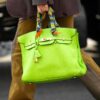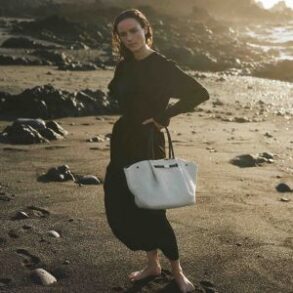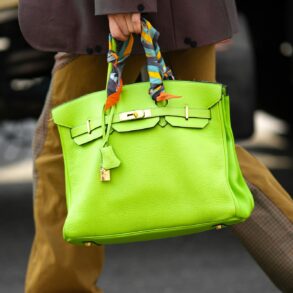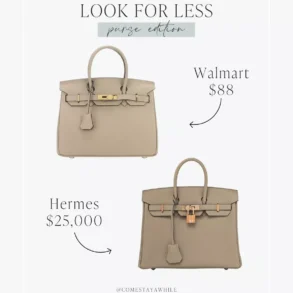
Talk about defining the term “monopoly” down.
In its current quest to protect American consumers from the anticipated ravages of corporate consolidation, the Federal Trade Commission moved to block the merger of two handbag sellers. Tapestry – which owns the Kate Spade and Coach brands – is trying to acquire Capri Holdings – which owns Michael Kors.
According to the Commission’s heavily redacted public filing, Coach, Kate Spade and Michael Kors “boast eye-popping market shares” in “accessible luxury” handbags. “It is in accessible luxury handbags that the Proposed Acquisition will create a colossus with over [redacted] percent market share in the United States, dwarfing all other market players.”
The complaint says Tapestry’s sales from all its Coach and Kate Spade products including handbags, footwear, accessories, ready-to-wear apparel, jewelry, eyewear, luggage watches, fragrances and home furnishings came to about $4 billion in North America in 2022-2023. Capri’s sales from Michael Kors, including handbags, small leather goods, other accessories, footwear, apparel and luggage came to about $2.2 billion in 2022-2023.
The redacted complaint does not isolate U.S. handbag sales from total North American sales but the maximum possible combined handbag sales equal $6 billion. Meanwhile, according to statista, the handbags market in the U.S. is projected to generate $13 billion of revenue in 2024. It would appear that these prospective monopolists would have a 46% market share at most.
A gander at the Federal Trade Commission’s website will tell you that “Courts look at the firm’s market share, but typically do not find monopoly power if the firm (or a group of firms acting in concert) has less than 50% of the sales of a particular product or service within a certain geographic area. Some courts have required much higher percentages.”
So where does the commission get its authority in this case? It creates a new, smaller market. Instead of considering the market for handbags, it claims there are three distinct handbag markets – mass-market offerings usually priced at less than $100, true luxury brands such as Gucci, Louis Vuitton and Prada, and accessible luxury offerings such as Coach and Kors.
This market-narrowing analysis is characteristic of the current Commission. Amazon has a 10% share of total retail sales and a 38% share of online retail sales. Yet, the Commission is suing based on Amazon’s share of a four-company e-commerce superstore market consisting of Amazon, Walmart, Target and Costco.
The commission is suing Apple which had an estimated 118 million iPhone users in the U.S. vs. 133 million Android users in 2022. Why? Apple has a higher share of a supposedly separate market for smartphones and performance smartphones.
Monopolies used to be, well, monopolies. Like electric utilities or the old AT&T or the even older Standard Oil. Define a market narrowly enough and there is a monopoly under every rock.
Whether the Commission’s theories will hold up in court remains to be seen. Meanwhile, it’s obvious that this FCC is moving the goalposts and playing a brand-new game.
Jeffrey Scharf welcomes your comments. Contact him at jeffreyrscharf@gmail.com.
This post was originally published on this site be sure to check out more of their content.








